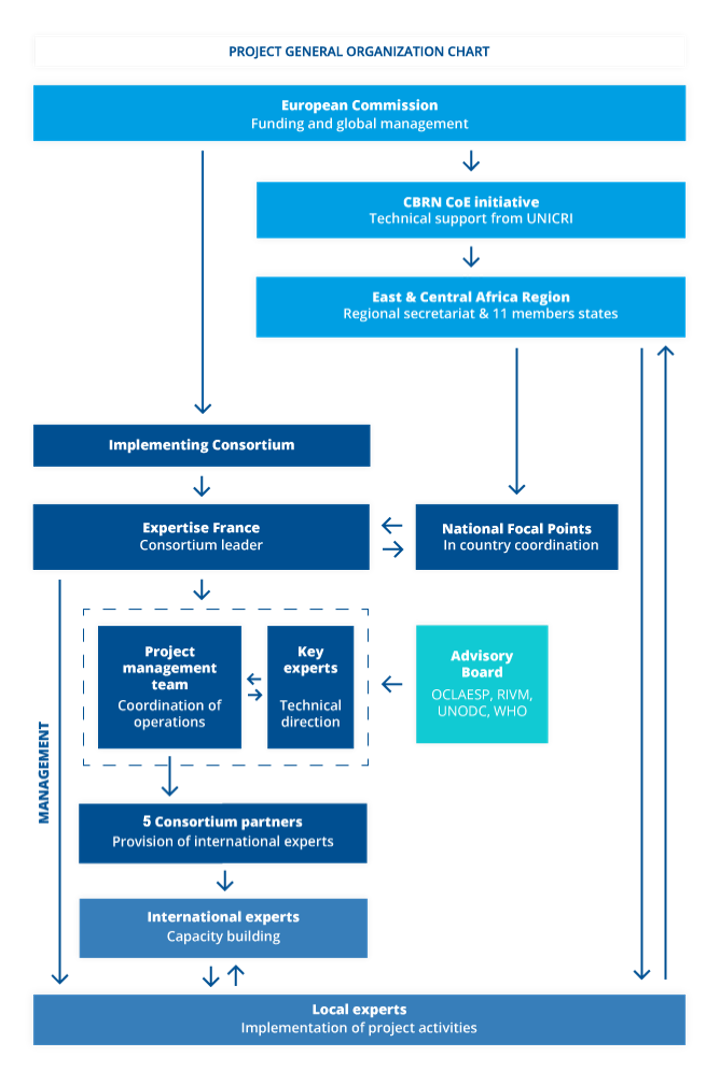
The MEDISAFE project was established by the European Union, following local demand, through the Chemical, Biological, Radiological & Nuclear Risk Mitigation Centres of Excellence Initiative (or EU CBRN CoE). The successful rollout of the project in its 11 partner countries (Burundi, Ethiopia, Democratic Republic of the Congo, Ghana, Kenya, Malawi, Rwanda, Seychelles, Tanzania, Uganda and Zambia) relies on the support of dedicated teams as well as the cooperation of key international and local players.
At an international level, the European commission chose Expertise France to implement the project at the head of a consortium of 5 partners: APRO-PHISP (Professional Association of Public Health Pharmacy Inspectors), ASST Fatebenefratelli Sacco (Italian public governmental health-care institution), CHMP (Humanitarian Center of Pharmacy Professionals), CIOPF (International Conference of the Order of Francophone Pharmacists) and ReMed (Medicines and Development Network). A project management team made up of the Expertise France Project Unit and 3 Key Experts is responsible for the operational and technical coordination of the consortium and the project. Consortium partners provide short-term international experts in their respective areas of specialization such as pharmacy inspection, quality control, risk communication and so on.
At a local level, each partner country appoints a National Focal Point (NFP) for the CBRN CoE Initiative. Once appointed, the NFP supports the creation of a CBRN National Team, which is composed of representatives from ministries, national agencies and institutions representing relevant communities involved in CBRN risk mitigation such as law enforcement officers, first responders and diplomats. The CBRN National Team is one of the pillars of the Initiative, as it is tasked with assessing the needs of individual countries, formulating project proposals and promoting the coordination of CBRN policy amongst relevant institutions at national level, and participates in the development of projects. In addition to these teams, the project hires local experts who collaborate with the international experts to deliver the project activities.
By combining a global strategy supported by technical assistance with initiatives implemented locally, MEDISAFE hopes to sustainably reduce the production and distribution of falsified medicines in its partner countries.
The chart below illustrates how the management of this ambitious project has been organized.
